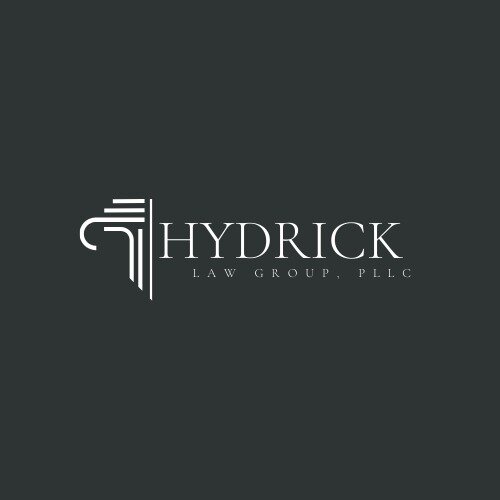Best Corporate & Commercial Lawyers in Texas
Share your needs with us, get contacted by law firms.
Free. Takes 2 min.
Or refine your search by selecting a city:
List of the best lawyers in Texas, United States
United States Corporate & Commercial Legal Articles
Browse our 1 legal article about Corporate & Commercial in United States written by expert lawyers.
- United States NY LLC Transparency Act 2026 Compliance Guide
- The federal Corporate Transparency Act (CTA) and New York's LLC Transparency Act are separate regimes: reporting to FinCEN does not satisfy New York's 2026 state filing requirement. Most small corporations and LLCs in the United States must file Beneficial Ownership Information (BOI) with FinCEN starting 2024, unless a specific federal... Read more →
About Corporate & Commercial Law in Texas, United States
Corporate & commercial law in Texas deals with the legal framework that governs business activities, company operations, contract negotiations, and commercial transactions. This area of law includes the formation and structuring of businesses, corporate governance, mergers and acquisitions, regulatory compliance, partnership agreements, and commercial dispute resolution. Texas has its own statutes and regulations for business entities and commercial contracts, along with important federal laws that apply across the United States. Texas is known for its pro-business environment, making it a popular place for entrepreneurs and established companies alike.
Why You May Need a Lawyer
There are numerous scenarios in which you may need to consult a corporate or commercial lawyer in Texas. Some of the most common situations include:
- Starting a new business and choosing the right legal structure (LLC, corporation, partnership, etc.)
- Drafting or reviewing contracts, such as supplier agreements, employment contracts, leases, or sales agreements
- Buying or selling a business
- Handling mergers, acquisitions, or joint ventures
- Navigating regulatory requirements and securing necessary business licenses or permits
- Resolving business disputes, including breach of contract and partnership disagreements
- Addressing intellectual property concerns (trademarks, copyrights)
- Ensuring compliance with employment laws
- Managing risk and liability, including insurance considerations
- Winding down or dissolving a business
Having an experienced lawyer can help you avoid costly mistakes, structure transactions correctly, and protect your legal interests.
Local Laws Overview
Several key aspects of Texas law are relevant to anyone dealing with corporate or commercial legal matters:
- Business Formation: Texas law allows several types of business entities, including corporations, LLCs, LPs, and partnerships. The Texas Secretary of State is the main office for business filings.
- Texas Business Organizations Code: This is the primary set of laws governing business structures and operations in Texas.
- Contract Law: Texas recognizes both oral and written contracts, but certain agreements must be in writing to be enforceable. Unique regulations may apply to commercial transactions.
- Employment Regulations: Texas is an at-will employment state, but there are exceptions and various federal and state employment laws that must be followed.
- Commercial Litigation: Texas courts handle a wide range of business disputes. Many contracts in Texas include arbitration clauses for dispute resolution.
- Sales Tax and Business Permits: Texas businesses are generally subject to state sales tax and must obtain various licenses or permits depending on the industry.
- Franchise and Securities Laws: Texas has regulations for franchise disclosures and sales, as well as state-level securities laws for raising capital.
Understanding these laws and how they interact is crucial for successfully running a business in Texas.
Frequently Asked Questions
What is the best legal structure for my Texas business?
The best structure depends on your specific needs, risk tolerance, tax considerations, and business goals. Common options include LLCs, corporations, and partnerships. An attorney can help you choose the right entity.
How do I register my business in Texas?
You generally must file formation documents with the Texas Secretary of State and obtain an Employer Identification Number from the IRS. Depending on your business, you may also need local permits or licenses.
Are written contracts required in Texas?
Not all contracts must be in writing, but written agreements are strongly recommended and sometimes required for enforceability, such as for the sale of real estate or agreements lasting more than a year.
What are my options if a business partner breaches an agreement?
You may be able to seek mediation, arbitration, or file a lawsuit for damages or enforcement. An attorney can help you review the partnership agreement and recommend the best course of action.
What steps should I take to sell my business?
Prepare accurate financial records, have the business valued, draft a purchase agreement, and perform legal due diligence. A lawyer will guide you through the sale and ensure compliance with Texas law.
How can I protect my business’s intellectual property?
Register trademarks, copyrights, or patents as appropriate, and include confidentiality clauses in employee or vendor contracts to protect trade secrets or proprietary information.
What is the process for resolving business disputes in Texas?
Disputes may be settled through negotiation, mediation, arbitration, or litigation. Many contracts specify required dispute resolution methods.
Do I need to collect sales tax in Texas?
Most businesses selling tangible goods or certain services must collect and remit Texas state sales tax. Specific requirements vary based on the products and services offered.
What employment laws affect my Texas business?
You must adhere to both federal and Texas state employment laws, including anti-discrimination regulations, wage and hour rules, and workplace safety standards.
How can I dissolve my business in Texas?
Properly dissolving a business involves winding up affairs, paying debts, distributing assets, filing with the Secretary of State, and satisfying tax and reporting obligations.
Additional Resources
If you need more information or assistance regarding corporate and commercial law in Texas, consider the following resources:
- Texas Secretary of State - Business and Public Filings
- Texas Comptroller of Public Accounts - Business Taxes
- Texas Workforce Commission
- State Bar of Texas - Find a Lawyer service
- U.S. Small Business Administration - Texas District Office
- Local chambers of commerce
Next Steps
If you are facing a corporate or commercial legal issue in Texas, take the following steps:
- Gather all relevant documents, contracts, and records related to your business matter.
- Write down a summary of your situation, including any deadlines or pending actions.
- Consult with a qualified corporate and commercial lawyer who understands Texas laws and can guide you through your specific concerns.
- Follow your attorney’s advice regarding document preparation, compliance, and strategic decision-making.
- Stay informed about your rights and obligations to ensure your business complies with all applicable laws and operates smoothly in Texas.
Having professional legal advice early on can save time, money, and stress, and help your business achieve long-term success.
Lawzana helps you find the best lawyers and law firms in Texas through a curated and pre-screened list of qualified legal professionals. Our platform offers rankings and detailed profiles of attorneys and law firms, allowing you to compare based on practice areas, including Corporate & Commercial, experience, and client feedback.
Each profile includes a description of the firm's areas of practice, client reviews, team members and partners, year of establishment, spoken languages, office locations, contact information, social media presence, and any published articles or resources. Most firms on our platform speak English and are experienced in both local and international legal matters.
Get a quote from top-rated law firms in Texas, United States — quickly, securely, and without unnecessary hassle.
Disclaimer:
The information provided on this page is for general informational purposes only and does not constitute legal advice. While we strive to ensure the accuracy and relevance of the content, legal information may change over time, and interpretations of the law can vary. You should always consult with a qualified legal professional for advice specific to your situation.
We disclaim all liability for actions taken or not taken based on the content of this page. If you believe any information is incorrect or outdated, please contact us, and we will review and update it where appropriate.
Browse corporate & commercial law firms by service in Texas, United States
Texas, United States Attorneys in related practice areas.
Browse corporate & commercial law firms by city in Texas
Refine your search by selecting a city.












